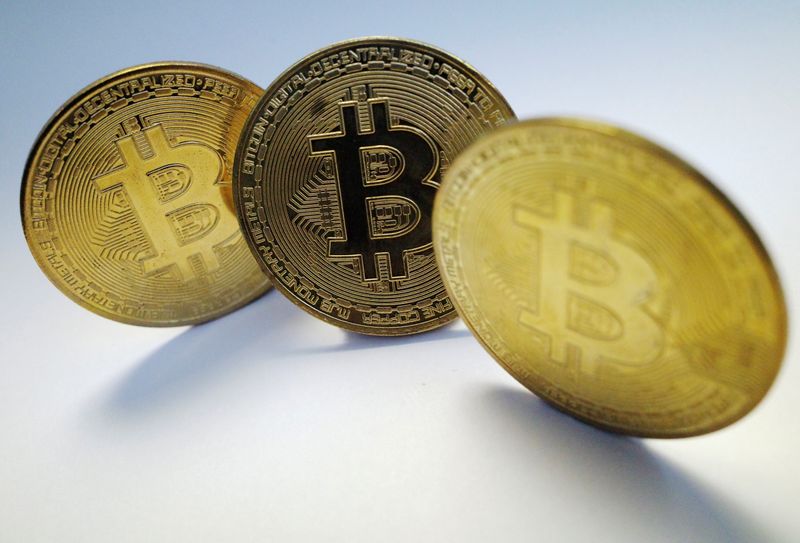Benzinga - With four banks collapsing this year, many people are concerned about the state of the U.S. banking system.
But cryptocurrency, which had a rough 2022, has been making a striking recovery. Bitcoin (BTC/USD), the largest cryptocurrency by market capitalization, is up 62.7% year to date while the S&P Cryptocurrency Broad Digital Market Index is up 50.6% so far this year. In comparison, the Dow Jones U.S. Banks Index is down more than 14% year to date.
The regional banking crisis has resulted in people flocking to crypto and blockchain-based assets to secure liquidity, and thus returning as investors as the asset rises in price. For example, Gamestop Corp. has seen a recent surge in volume on the platform, with some assets hitting five and six-figure volume spikes. In the startups market, retail investors have invested over $900,000 in Gameflip for their digital asset and NFT marketplace.
Read Next: The House-Printing Robot Shaking Up a $7.28 Trillion Industry
Banking Crisis Today
Credit Suisse Group closing its doors sparked concern over German giant Deutsche Bank AG collapsing and worries that bank failures will spread throughout Europe’s banking sector. This comes after two U.S. banks — Silicon Valley Bank and Signature Bank — collapsed earlier this year.But the trouble doesn’t end there. A study by the Social Science Network states that 186 banks are at risk if depositors withdraw their uninsured deposits.
The banking crisis today is very different from the situation in 2008 because the use of social media has allowed the rapid spread of misinformation and market panic. Social media provides “more scope for damaging rumors to spread,” according to Jon Danielsson, director of the Systemic Risk Centre at the London School of Economics.
The first banking crisis of the Twitter generation caused Silicon Valley Bank, then the 16th-largest bank in the U.S., to crumble within days — faster than any banking collapse in history.
Don’t Miss: This Startup Built the World's First AI Marketing Platform That Can Understand Emotion and Some of the Biggest Companies on the Planet Are Already Using It
Crypto Trend Reversal
Investors are increasingly turning toward decentralized cryptocurrencies as the banking crisis shakes up global markets. After the Silicon Valley Bank and Credit Suisse failures, several institutional investors have touted Bitcoin as a safe-haven asset. While the collapse of the popular crypto-focused bank Silvergate Capital earlier in March caused decentralized tokens to pull back, the banking crisis has driven cryptocurrencies to gain momentum.“I continue to advocate Bitcoin as a hedge against the current antiquated and over-regulated banking system and as a hedge against bad governments with too many regulations,” billionaire investor and venture capitalist Tim Draper said. “I have recommended to all CFOs [chief financial officers] as a hedge against bank or government failures to have at least two payrolls worth of Bitcoin to avoid catastrophic failure.”
Ark Invest founder and CEO Cathie Wood expects Bitcoin to surge exponentially if the banking contagion further exacerbates market panic. Wood stated that the largest cryptocurrency is “playing the store of value role right now. And, if the global monetary systems right now, shall I say, lose the confidence of people generally, there will be a shift to more crypto from a store of value point of view, certainly.”
To stay updated with top startup news & investments, sign up for Benzinga’s Startup Investing & Equity Crowdfunding Newsletter
Fed Taper And Crypto Market Opportunities
The Federal Reserve’s hawkish stance and consecutive rate hikes were one of the major factors behind crypto’s downfall. The Fed hiked the benchmark federal funds rate seven times last year, causing Bitcoin to plummet by more than 60%.But in the wake of financial contagion — the spread of an economic crisis from one market to another — the Fed has begun to taper its rate hikes. The central bank raised the interest rate by a quarter of a percentage point in March, which is significantly lower than the rate hikes in 2022. Powell divulged in the Federal Open Market Committee (FOMC) post-meeting statement that the precarious banking situation was one of the major factors behind the relatively low rate hike.
Crypto assets are poised to benefit from the slower rate hikes as investors branch out to alternative investment sources. The tumultuous macroeconomic backdrop is expected to make decentralized currencies more attractive.
“As actors begin to understand the role which U.S. monetary policy, inflation and increases in interest rates have played in the current banking sector challenges, you are likely seeing a move towards Bitcoin and other forms of crypto as a reflection of their potential value as a hedge and alternative store of value during such times,” Global Digital Asset & Cryptocurrency Association CEO Gabriella Kusz said.
Challenges Ahead For Cryptocurrency Industry
Analysts have chalked up the first banking crisis of the social media era as a “sentiment contagion” rather than a “financial contagion.” As the crypto rally was primarily driven by market fears surrounding a systemic collapse of the banking sector, this current uptrend might be a bull trap. Also, the demand for risk-free safe-haven assets is typically higher during periods of recession.See more on startup investing from Benzinga.
- Qnetic Unveils Revolutionary Flywheel Energy Storage System to Accelerate Renewable Energy Adoption
- Buy Online, Print Instantly at Home: Retail Investors are Funding The 3D Printing Startup Pioneering a New Way To Buy and Recieve Your Products
© 2023 Benzinga.com. Benzinga does not provide investment advice. All rights reserved.
